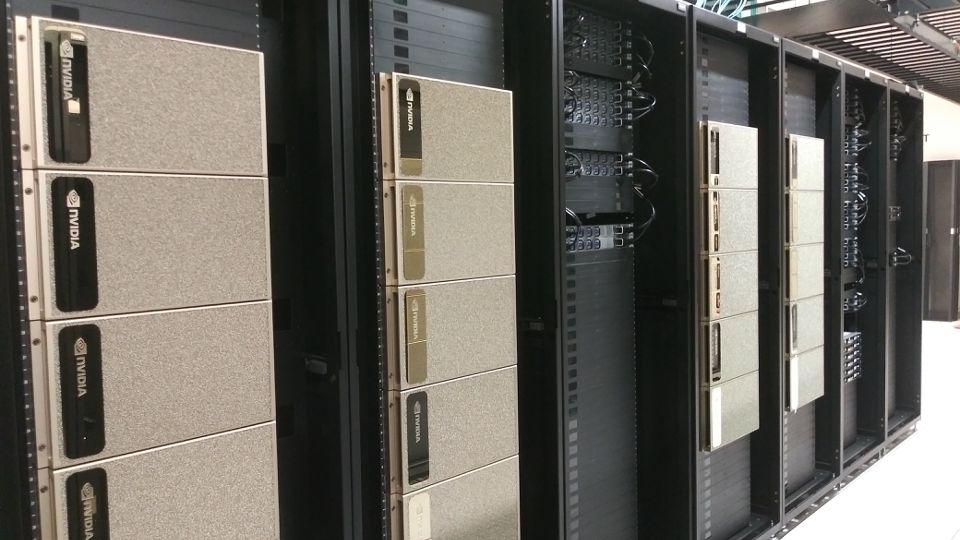It's Time for Colleges to Embrace Artificial Intelligence
A major tech upgrade in higher ed would accelerate critical research and prep students for tomorrow’s jobs

When the University of Florida plugs in its new artificial-intelligence supercomputer in January, it will also flip the switch on the dawn of a new age in university technology — one that many other colleges will emulate, Florida’s leaders hope.
The $125 million project will power a new AI academic program across all disciplines, preparing tens of thousands of students for the high-tech jobs of the next few decades. It will aid researchers looking for deeper and faster ways to help solve some of the world’s most difficult challenges, including climate change. And it will aspire toward equity. The University of Florida will extend its AI initiative far beyond its Gainesville campus, offering opportunities to students at a variety of colleges in the state, including HBCUs.
“We believe that AI shouldn’t be limited to the computer science department or to one institution,” says Joseph Glover, provost at the University of Florida. “Making sure that students across the curriculum learn about AI gives us the opportunity to train people at scale for tomorrow’s jobs.”
As more businesses and governments turn to AI to power their operations, the technology, which has the ability to write and rewrite software on its own to solve problems, has begun to attract the notice of university leaders. But the cost of AI, along with its usual placement solely within STEM disciplines, has so far limited the use of this potent tool on campus.
Florida’s leap forward — one part serendipity, and one part generosity — offers an example of how to build and fund an AI program. It started with Glover’s long-held desire to create a non-siloed data-science career program at the university. His concept would eventually mesh perfectly with the ideas and expertise of Chris Malachowsky, a Florida alum and a co-founder of NVIDIA, the Silicon Valley-based tech giant and a leader in AI development. Malachowsky would eventually donate $25 million to the effort.
Meanwhile, NVIDIA signed on as a partner, with its experts building out the supercomputer while the company offered another $25 million in in-kind costs. Private donors and the state of Florida have also kicked in tens of millions of dollars. The result is the most powerful AI supercomputer on any American campus.
University of Florida’s HiPerGator



NVIDIA has a long history of helping universities ramp up their technology. More than 1,500 universities around the world use its products for research in a wide variety of fields, including agriculture, genomics, molecular chemistry, natural language processing, robotics and transportation.
The company’s leaders say now is the time for colleges to make comprehensive investments in AI.
“What we see now at Florida is absolutely replicable,” says Cheryl Martin, director of higher education and research at NVIDIA. “We’re putting together ways to package the Florida model so other universities can also take on AI.”
A comprehensive AI program can help institutions:
Develop the nation’s next workforce
AI is now being used in a variety of professions. In health sciences, the technology reads diagnostic tests more accurately than humans. Farmers now employ AI to determine how to increase yields, shrink their carbon footprint and conserve water. And, of course, there are computer and data scientists who are relying more and more on AI to innovate.
“AI will be key in developing all of those fields. This effort is all the more important because the government is now looking at AI as a workforce issue.”
The college students of today will become the workers of tomorrow — and for the next 40 or more years, he adds. As AI spreads throughout the economy, it’s important to educate students on what AI is and how they can use it in their professions. Because of that, the University of Florida’s AI curriculum will travel across the entire campus, seeping into every subject area — from sociology to anthropology to education — while offering both certificates and degrees centered upon AI competency.
Improve research
By dramatically increasing the capacity to gather and analyze data, Florida’s supercomputer will accelerate the search for interdisciplinary solutions to the world’s largest and most pressing problems. Already, the university has announced it will focus its AI resources on aging global populations, data security, food insecurity, personalized medicine, rising seas and urban transportation issues. While aiding researchers, AI will also allow students to “think bigger” and search more widely for solutions, Martin adds.
The supercomputer “will allow researchers to perform quantum-accurate molecular simulations of proteins to help find cures to diseases like COVID-19,” says Adrian Roitberg, a chemistry professor at the University of Florida. “What would’ve taken months or years can now be done in a day.”
What’s more, AI will likely help stanch the outward flow of university researchers who have taken their labs to Silicon Valley, where computing capabilities are much more powerful than those on today’s campuses.
Help the nation retain its global edge
Colleges have long been counted on to help keep the U.S. out in front in tech development, both for economic and national security reasons. The speed and depth offered by AI are now seen as vital to keeping the nation a pre-eminent power as other countries ramp up their tech capabilities.
Last year, a bipartisan group of senators proposed the Endless Frontier Act, which would increase federal funding on science and technology by at least $100 billion over the next five years. Also, two members of Congress recently introduced a resolution to create a national AI strategy. Signs are that the bills, if passed, would include money for colleges to start or develop their AI programs.

Make expensive tech accessible and inclusive
NVIDIA and the University of Florida call their partnership, “AI for all.” That phrase represents both a belief in making sure AI technology is fair to all groups and that it is available to everyone.
Florida is mindful of concerns that AI systems are sometimes biased against women and people of color. The university wants to make sure that its technology avoids those biases and that it teaches students how to develop good algorithms from richly diverse datasets. In its AI certificate program, the university will include a course on AI ethics. “Equitable AI is a research area we’re interested in developing,” says Glover.
The university emphasizes reaching beyond its borders. Other Florida institutions have already been invited to use the supercomputer, as will other parts of the community. “What really got NVIDIA and me excited was partnering with the University of Florida to go broader still and make AI available to K-12 students, state and community colleges, and businesses,” says Malachowsky.
Meanwhile, NVIDIA works to lower the cost of AI, regularly offering 30% discounts on hardware for higher education institutions , as well as free teaching kits on AI, grants, and other sweeteners.
Overall, NVIDIA holds out hope that, as Florida’s program continues, it will become an inspiration for other institutions.
“UF can be the pioneer for this,” says Austin Carson, senior manager of government relations at NVIDIA. “The comprehensive nature of Florida’s program sets a strong example for universities across the country. It covers the entire state, is designed to be inclusive, invests in more AI talent and includes across-the-campus curriculum.”
Those colleges that shrink from the promise of AI run the risk of losing research dollars, researchers, students — and, ultimately, relevance, he adds.
“AI is the new electricity, the new internet,” Carson says. “It’s the most important technological and geopolitical force out there right now. The colleges that embrace it will be the ones that attract the best students, boost research efforts, and really drive education forward.”
For more information on NVIDIA's solutions for higher ed, visit https://www.nvidia.com/en-us/industries/higher-education-research/
This content was paid for and created by NVIDIA. The editorial staff of The Chronicle had no role in its preparation. Find out more about paid content.



